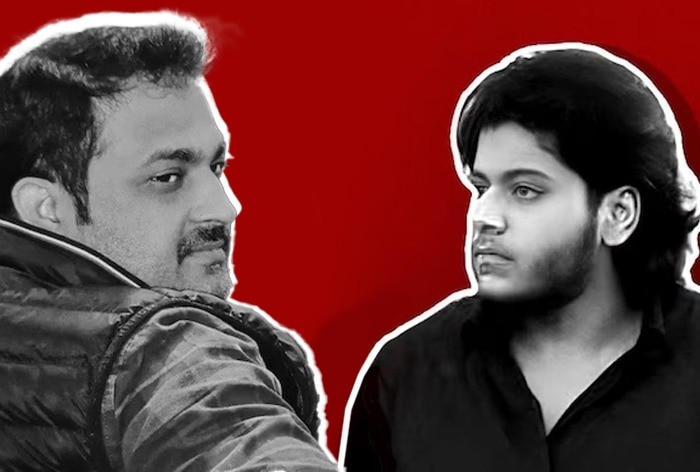[ad_1]
In an FIR, the UP Police said cops tried to capture Asad and Ghulam – the two accused who were involved in the killing of lawyer Umesh Yadav – “alive” before they were killed in an encounter.

New Delhi: The cops tried to capture Asad Ahmed and Ghulam – the two accused who were involved in the killing of lawyer Umesh Yadav – “alive” before they were gunned down in an encounter in Jhansi, the Uttar Pradesh Police said in the First Information Report (FIR).
Both Asad and Ghulam were on the run since the killing of Umesh Pal, a key witness in the 2005 murder of then BSP legislator Raju Pal. Umesh Pal’s wife Jaya had alleged in a police complaint that Atiq Ahmad, his brother Ashraf, son Asad, their accomplice Ghulam and others were behind the killing.
Asad-Ghulam encounter: What UP Police said in FIR
The Uttar Pradesh Police, in its FIR in connection to the Asad-Ghulam encounter case, said that the two criminals fired at the cops.
“The police team went after them and tried to stop them repeatedly and wanted to capture them alive. During the chase, the motorcycle slipped and fell near a babool tree. Asad and Ghulam threatened to kill the police team, abused them and started firing at them. The police retaliated by firing back at Asad and Ghulam,” the FIR report stated, according to a report by India Today.
Another report stated that Asad and Ghulam fired upon UP Police team with an “intent to kill”. “Asad and Ghulam took cover, started abusing the police and fired with the intent to kill,” NDTV said in its report.
Who was Asad
Asad, the third son of gangster Atiq Ahmad, was one of most wanted criminal in Uttar Pradesh. He carried a reward of Rs five lakh. Asad had no criminal record before February 24 this year when he allegedly led a group of assailants in the sensational killing of lawyer Umesh Pal and his two police guards outside his residence in Prayagraj.
Police records show Asad’s elder brother Ali has four cases while the eldest brother Umar has one case against him, according to a report by news agency IANS. His father Atiq Ahmed has 102 criminal cases registered against him and uncle Khalid Azeem alias Ashraf has 50 FIRs lodged against him.
Asad had passed the intermediate (Class 12) examination from a prestigious school in Lucknow last year. He mostly stayed in Lucknow and kept away from his father’s business and criminal activities.
Asad reportedly wanted to go out of the country for higher studies but his passport verification was rejected following his family’s criminal background. Asad was preparing to take admission in an LLB course since then.
Backed by his gangster father Atiq Ahmed, Asad had led the team that killed Umesh Pal on February 24 in a daring daylight shootout.
What Supreme Court guidelines say on police encounters
- As per the Supreme Court guidelines in case of police encounters, an independent investigation into the incident/ encounter shall be conducted by the CID or police team of another police station under the supervision of a senior officer (at least a level above the head of the police party engaged in the encounter).
- The team conducting inquiry/investigation shall, at a minimum, seek to identify the victim, recover and preserve evidentiary material including blood-stained earth, hair, fibers and threads etc related to the death, identify scene witnesses and obtain their statements (including the statements of police personnel involved) and determine the cause, manner, location and time of death as well as any pattern or practice that may have brought about the death.
- Any evidence of weapons, such as guns, projectiles, bullets and cartridge cases, should be taken and preserved. Wherever applicable, tests for gunshot residue and trace metal detection should be performed.
- Any evidence of weapons, such as guns, projectiles, bullets and cartridge cases, should be taken and preserved. Wherever applicable, tests for gunshot residue and trace metal detection should be performed. The cause of death should be found out, whether it was natural death, accidental death, suicide or homicide.
- The SC guidelines said if on the conclusion of investigation, the material or evidence having come on record show that death had occurred by use of firearm amounting to offence under the Indian Penal Code (IPC), disciplinary action against such officer must be promptly initiated and he be placed under suspension.
- No out-of-turn promotion or instant gallantry rewards shall be bestowed on the officers concerned soon after the occurrence of the encounter and it must be ensured at all costs that such rewards are given/recommended only when the gallantry of the officers is established beyond doubt.
- The involvement of National Human Rights Commission (NHRC) is not necessary unless there is serious doubt about independent and impartial investigation. However, the information of the incident, without any delay, must be sent to the NHRC or the state human rights commission, as the case may be.
[ad_2]
Source link
